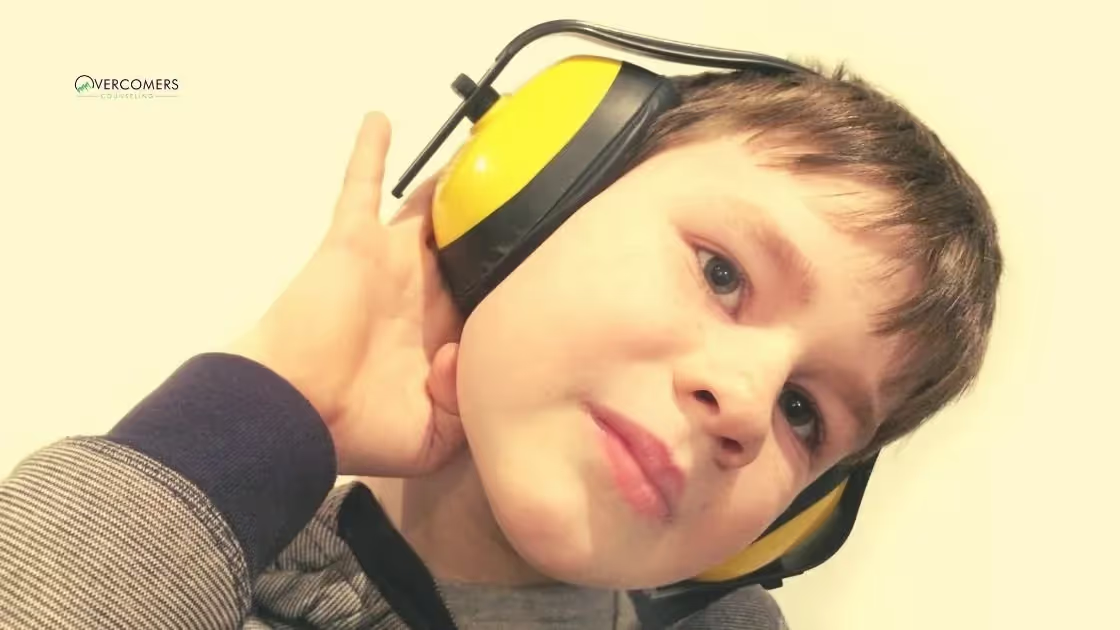It is popularly believed that autistic people are quiet, non-vocal, and isolated individuals who prefer to withdraw from people rather than engage in a...

It is popularly believed that autistic people are quiet, non-vocal, and isolated individuals who prefer to withdraw from people rather than engage in a social environment. While this belief has some degree of truth, it is not always the case. There are several other vital reasons autistic people need alone time and may choose solitude. One of those reasons is that autistic people need time to react and recover from sensory overload. People with autism often develop hypersensitivity to sight, taste, touch, smell, and other sensory stimuli, which may affect their present behavior and state of mind.
The best way to support autistic people during this period is to give them time to regulate and recover. Also, autistic people may need time alone to prepare for social interactions. Some people with autism face difficulty building social and communication skills, which may hinder their ability to form relationships with people. That is why people with autism may need extra time to practice and prepare to interact with others. Similarly, autistic people need downtime to retreat from overwhelming situations. Daily struggles can lead to anxiety, confusion, and meltdowns for people with autism.
When overwhelmed with these struggles, it's best to give them alone time to retreat to their safe space to meditate and relax. Consider this overview to learn five reasons why autistic people need alone time:
Autistic people need alone time to recover from sensory overload. It is common for autistic people to develop hypersensitivity to certain sensory inputs, including light, sound, touch, temperature, taste, and smell. However, constant exposure to these stimulations can be physically and emotionally distressing, making it difficult for them to function optimally. Often, hypersensitivity to sensory stimulimulations worsens in social settings, including restaurants, classrooms, or family gatherings, where autistic people have no control over the environment. This exposure can make them anxious, frustrated, exhausted, or irritable, and develop an urgent need to be alone.
Likewise, an autistic person may need downtime to process and respond to information. Overloading an autistic person with information can cause significant stress and anxiety, making them withdraw or have meltdowns. While relating with autistic people, it is important to consider their reaction to sensory stimulations. If you cannot provide needed help, it's best to give them time and space to recover and self-regulate.
One of the reasons autistic people need alone time is to retreat from overwhelming situations. When people with autism are exposed to negative situations, face difficulty expressing themselves, or struggle with understanding others, they often cope by withdrawing into their safe space. A safe space can include cozy spaces, an isolated chair, their bedroom, outdoors, or spaces where smells, sounds, and temperature are controllable. Once you identify their safe space, you can also encourage them to visit those places when they are having a meltdown. Furthermore, autistic people retreat from overwhelming situations in different ways.
They may walk out amidst conversations, ignore you or start doing something else. It is essential to recognize their behavior as a coping mechanism rather than labeling them rude or snobbish. People with autism often experience difficulty communicating, reading body language, and interacting with people. While relating with an autistic person, remain patient and avoid pushing them beyond their limit. If they start to feel overwhelmed or develop anxiety, allow them time off to retreat to their safe space.
Like every other person, autistic people need alone time to engage in their favorite activities. Most people with autism develop interests and can show an obsession with performing certain activities. These activities help them recharge their batteries and are usually harmless. Enjoyable activities differ for autistic people. It could be playing with dinosaurs, listening to a particular playlist, bike riding, or coloring. They find pleasure and safety while performing these activities.
Likewise, spending time alone to engage in fun and enjoyable activities helps people with autism to process thoughts and emotions, recover from anxiety and release stress. While it is normal to want to bond with people over their favorite activities, autistic people may prefer to engage alone. This is because they work with a particular structure and routines that others may not understand or want to change.

Autistic people need alone time to prepare themselves to interact with people. Similar to introverts, people with autism can run out of social batteries and may take time off to recharge and recover. During this alone time, they may choose to create a socializing schedule, practice conversation starters, and mentally prepare themself for encounters with other people. When they feel ready to reconnect with people, they may do so by sharing knowledge about their interests.
If you're trying to relate to an autistic person, you can take advantage of your shared interests to bond; however, it is important not to disrupt their schedule. In addition, when relating with an autistic person, it is vital to note that they are easily overwhelmed and anxious and may need time alone, even in a social setting. Avoid forcing them in hopes of bringing them out of their comfort zone; you will only do more harm than good.
One of the essential reasons autistic people need alone time is to build resilience. Life is full of ups and downs, and for people with autism, building resilience skills will make it easier to overcome difficult life challenges and bounce back. During their alone time, they can self-reflect, manage their emotions, and recover from disappointments or setbacks. This way, they can build a strong self-identity, manage change, and make their way through life difficulties. Regular daily struggles can be more frightening and overwhelming for autistic people.
They are also prone to encounter situations that may affect their self-esteem, self-confidence, and mental health. Taking time off allows them to analyze difficulties at their own pace, build confidence, and master ways to overcome challenges. In addition, when relating with autistic people, it is crucial to give them space and time as overprotection, negative messages, or assuming incompetence can hinder their personal growth and ability to acquire resilience.
Comprehending the reasons why individuals on the autism spectrum require periods of solitude can greatly enhance our responses towards them, foster a more understanding environment, and guide us in supporting the autistic community more effectively.
Spending time alone is beneficial for autistic adults, children, and women alike. It aids in building resilience, preparing for social interactions, engaging in enjoyable activities, managing sensory sensitivities, and providing a retreat from situations that may be overwhelming. Therapy or counseling for austic individuals can help with this. This understanding is crucial for family members, neurotypical people, and the entire community to better support those with autism spectrum disorder.
Autistic traits can vary widely, and while social isolation might exacerbate feelings of loneliness for some, not everyone on the autism spectrum feels lonely when they spend time alone. For many, it's a necessary respite to cope with sensory overload caused by certain sounds and other stimuli.
Social interaction can sometimes pose challenges for those with autism spectrum disorder, including those with Asperger's syndrome. However, self-acceptance and understanding from non-autistic people can significantly improve their mental health conditions.
Understanding the core symptoms of autism and the ways in which autistic individuals use solitude to manage these symptoms can help us create a more inclusive society, where isolation becomes less of a problem and more of a path to resilience and self-empowerment.
https://autismawarenesscentre.com/understanding-why-autistic-people-need-alone-time/
https://www.verywellhealth.com/are-autistic-people-introverts-4691154#toc-autistic-extroverts
https://autismawarenesscentre.com/building-resilience-an-important-life-skill/
No, we provide counseling (talk therapy) and medication management for individuals with Autism or those who may have Autism. However, if you require a formal evaluation involving comprehensive testing, we recommend consulting a Psychologist.